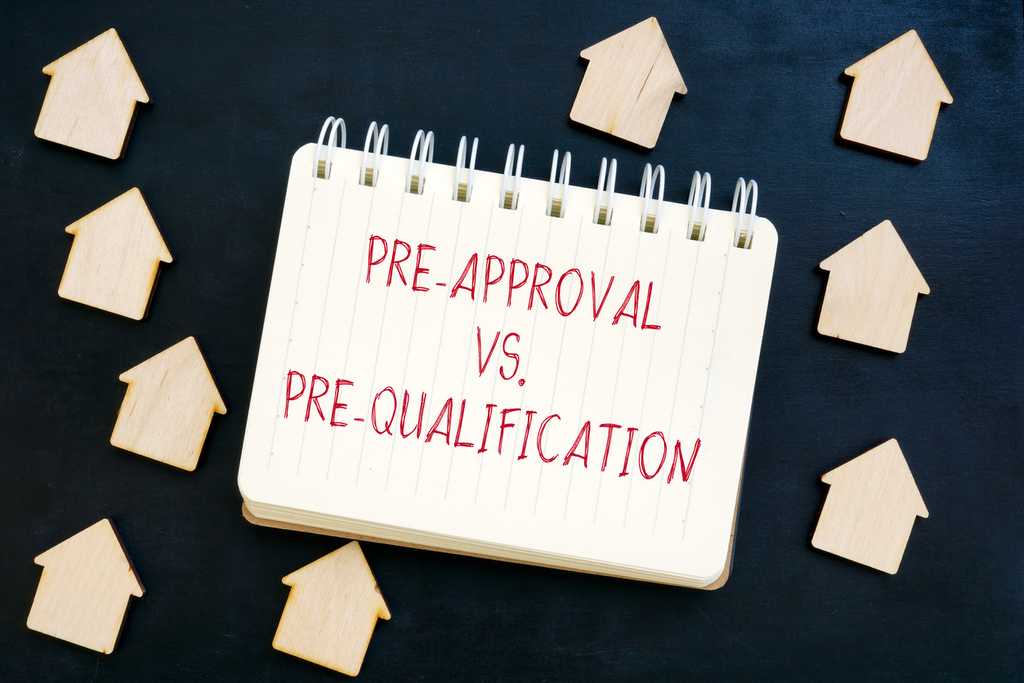In the market for a new house? It’s a good idea to get pre-qualified or pre-approved for a mortgage before you start looking. Getting pre-qualified or pre-approved can help you get a better idea of how much money you will be allowed to borrow. And when you’re ready to put in an offer on your dream home, it can also give you an advantage as a buyer. Here’s what you need to know about mortgage pre-qualification and pre-approval, and how they work.
What is mortgage pre-qualification?
If you are pre-qualified for a mortgage, it means that a bank or financial institution has determined that you are a qualified borrower, based on some basic personal information that you provide. With that information, the lender can quickly learn if you are a good candidate for a mortgage.
After you have been pre-qualified, the mortgage company will provide a letter of pre-qualification with the amount of money you can expect to borrow when you officially apply for the loan. Keep in mind that this figure is simply an estimate – you won’t know exactly how much money you can borrow until you are pre-approved (more on that next).
Getting pre-qualified for a mortgage is not a requirement in order to start home shopping. However, it’s a good idea to get pre-qualified to show your real estate agent or a home seller that you have been vetted by a mortgage company. It makes you more credible in the eyes of the seller, especially if you intend to put in an offer.
What is mortgage pre-approval?
Mortgage pre-approval is the next step after pre-qualification. When you get pre-approved for a mortgage, it means the mortgage company has thoroughly explored your financial history, checked your credit, and made the decision to let you borrow a certain amount of money. When you get pre-approved, you will know exactly how much money you can borrow.
Once you are pre-approved, you will receive an official letter from the mortgage company with the amount of money you are approved for. In most cases, a pre-approval letter is valid for 90 days. However, getting pre-approved for a mortgage does not guarantee that the lender will give you the money for the home you intend to purchase.
Like with pre-qualification, you aren't required to be pre-approved for a mortgage before you start looking for homes. However, as you get more serious in the home buying process, it’s a good idea to get pre-approved. It will make the closing process easier if your offer is accepted, and you won’t run the risk of buying a house you can’t afford.
Differences between pre-qualification and mortgage pre-approval
Getting pre-qualified and pre-approved for a mortgage are different things. When you get pre-qualified, it’s usually based on self-reported personal information. In some cases, the lender will run a soft credit check to get a better idea of your financial history.
On the other hand, getting pre-approved for a mortgage is a much more in-depth process. On top of a comprehensive application, the lender will run a hard credit check, and do a careful evaluation of your financial history over the last several years. Therefore, it’s more difficult to get pre-approved for a mortgage than pre-qualified.
How long does pre-qualification or pre-approval take?
When you get pre-qualified for a mortgage, you can often complete the application online and get a decision instantly. When you get pre-approved, it’s usually a longer process. Because the mortgage underwriter has to review your application manually, getting a decision on pre-approval can take up to a week or longer.
What information do I need to provide?
To get pre-qualified for a mortgage, you may need to provide your age, the amount of money you want to borrow, the down payment you are expecting to make, and your income. Some lenders may also ask for some information about your bank accounts, like the amount of money you have in savings.
For mortgage pre-approval, you are required to submit additional information. You should expect to provide your job history, tax statements for recent years, pay stubs for W2 or 1099 income, and liens, such as an auto loan. You will also need to disclose your criminal history and provide your Social Security Number, which will be used to run a hard credit check.
Which one is right for me?
If you are thinking about getting a house, or are in the beginning stages of home shopping, getting pre-qualified for a mortgage is sufficient. Pre-qualification will give you a good idea of how much money you can borrow, and therefore, how much house you can purchase.
When you get more serious about buying a home, or you want to put in an offer on a specific home, it’s time to get pre-approved. You should know exactly how much money you can borrow before you put in an offer to avoid issues with your financing.
Frequently Asked Questions
Does pre-qualification guarantee a mortgage?
No, getting pre-qualified for a mortgage does not guarantee that you can borrow any amount of money from the lender. Also, remember that the amount of money you are pre-qualified for is an estimate. Until the lender investigates your financial history more thoroughly, they cannot definitively say how much you are eligible to receive.
How long is a home loan approval good for?
A mortgage pre-approval is generally valid for 90 days from the day of your acceptance. If you get pre-approved and do not purchase a home within the 90-day period, you will need to reapply and go through the process again, as your credit score and income may have changed.
Can you get pre-qualified but not approved?
Yes, it’s possible to get pre-qualified for a mortgage but not get approved. This might happen if you have a poor credit score, have no recent employment history, or have a high debt-to-income ratio.
Similarly, there is no requirement to go through the pre-approval process after you get pre-qualified. For example, if you get pre-qualified before you start looking at homes but decide to put your search on hold, there’s no need to get pre-approved at that time.

